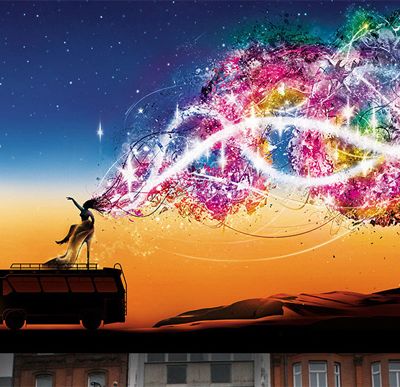intimacy
These two films were refreshing because they didn’t have the fairytale endings of girl-meets-boy, they fall in love, overcome difficult challenges and live happily ever after. Instead, they were set in everyday reality where life takes over and choices have to be made.
I want it, I got it. Right? Except, what I often get is some approximation of erotic pleasure, which has more to do with my own conditioning about what good sex looks like, and little to do with my body’s erotic mechanisms. This very peculiar condition is often lumped under ‘sexual frustration’, when it should really be addressed under safety.
Though most of us shy away from opening ourselves to be vulnerable, there is great power in expressing our vulnerabilities to the people closest to us, whether a friend or an intimate partner.
We all talk of ‘safe’ as some place where we are not in danger. Well, the truth is there is danger everywhere. So, maybe before we even delve into the subject of safety and sexuality, it is imperative that we take a moment to pause and see what safety and sexuality could even mean.
You held my hand, we hugged each other / I was lost in your love, wanting to go further
Fragile and fleeting like soap bubbles, pleasure shines with many colours. But its iridescence is frightening for many. Perhaps because its colours change in unpredictable and uncontrollable ways, and though fragile and fleeting, it is a world in itself
There is a deep connect between travel and sexuality that is internalized at gut level. From birth perhaps. Across cultures. The two are almost metaphors for each other, twins, borrowing words from the lexicon of the other, entwining identity.
Spirituality and sexuality (for most people, if they are not asexual or voluntarily celibate, either of which is their right to be) are both about union. And they are both about deeply personal and intimate aspects of oneself.
Spirituality often means different things to different people – some may dismiss it, some may link it to faith or religion, while some may simply experience it as a personal moment of connection. And spirituality is just that, a moment in which one feels ‘beyond’ oneself.
An Indian joint family shares spaces where lives and narratives overlap and privacy is stymied. Acts of intimacy, pleasure, and sexual exploration become difficult to pursue, and both privacy and sexual fulfillment become a much sought-after luxury.
In our mid-month issue, Rahul Sen writes of the impossibility of intimacy, of the gnawing pain and underlying cruelties it may unsheathe and how it is at best an illusion while Pavel reminds us of how, in our search for intimacy, we keep bits and parts of our lost loves and they keep parts of us, and how through being loved by them we learn also to love ourselves.
Every match that came my way, every person I spoke to, every time someone pointed to the word “asexual” in my bio – it was all an exercise in acceptance, compassion, and empathy. People were asking questions because they wanted to know how best to interact with me, how to respect my boundaries, how to to get over their own misgivings about ‘my kind’.
For a while now, I have been invested in noticing the unique terms of endearment that characterise individual relationships. What are some of the non-verbal, non-physical ways in which couples begin to connect with each other? Intimacies that are so subtle that they are almost invisible and often hidden in plain sight?
Roland Barthes writes in A Lover’s Discourse that we begin to think of ‘love’ as an idea only when our beloved or the object of desire has departed – either when love has failed, or in the absence of the lover – that is absolutely crucial to any theorisation of love.















